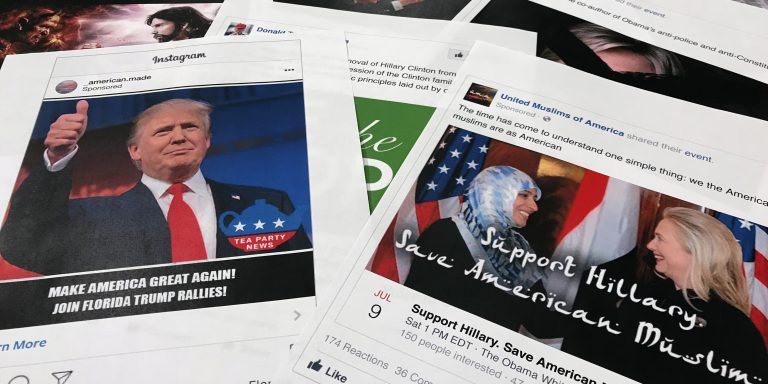INTELBRIEF
February 22, 2018
TSC IntelBrief: The Importance of the Russia Investigation

- The ongoing investigation by the Special Counsel into Russian election interference is more than a political football.
- At heart is an attempt to unmask an orchestrated online disinformation campaign aimed at widening already existing socio-political divisions in the U.S.
- The indictments of 13 Russians and 3 Russian companies show how deeply the investigation is reaching into what is usually an anonymous and risk-free endeavor of online social engineering.
- President Trump continues to downplay the scale of the Russian campaign, using Twitter to denigrate the FBI as well as his own Attorney General.
On February 20, 2018, the Special Counsel investigating the Russian interference in the U.S. 2016 presidential election charged Alex van der Zwaan, a lawyer with a prominent corporate law firm and the son-in-law of Russian oligarch German Khan, with lying to federal investigators. He admitted in court to lying about the nature of his work with former Trump campaign manager Paul Manafort, who has also been indicted in the ongoing investigation. 19 people have now been charged, with some, such as former National Security Advisor Michael Flynn, cooperating with officials under plea arrangements. The latest indictment shows that the Special Counsel investigation, led by former FBI Director Robert Mueller, is determined to push through obstruction to get to the heart of what remains a serious threat to U.S. domestic stability.
On February 16, Deputy Attorney General Rob Rosenstein announced the indictments of 13 named Russian individuals and three Russian companies. A federal grand jury, in a 37-page indictment, found that the Russian firm Internet Research Agency had been the epicenter of a four-year (and still ongoing) campaign to widen social divisions in the U.S. The campaign then morphed into a concerted effort to boost the campaign of then-candidate Trump while hammering at the campaign of his Democratic rival, Hillary Clinton. The indictment is the result of painstaking work to pull back the veil of anonymity that is at the heart of online disinformation campaigns.
Since the February 16 indictments, President Trump has taken to Twitter to denounce the FBI for continuing to look into a ‘hoax,’ then pivoting to say there was Russian interference, but it was the fault of the Obama administration. On February 21, he appeared to blame his Attorney General, Jeff Sessions, for not steering the investigation towards the Obama administration, tweeting: "Question: If all of the Russian meddling took place during the Obama Administration, right up to January 20th, why aren’t they the subject of the investigation? Why didn’t Obama do something about the meddling? Why aren’t Dem crimes under investigation? Ask Jeff Sessions!"
While it is impossible to put aside the political significance and repercussions of the ongoing investigation (the parallel partisan House and Senate investigations have broken down into rancor), the issue of Russian disinformation campaigns is, at its heart, a pressing national security issue. The Russian campaign, which has been acknowledged by not just every intelligence agency in the U.S., but also most western democracies, including Germany, France, and the U.K., all of whom are also under the same attack, has been essentially consequence-free for Russia.
The incredibly difficult task of pinpointing actual individuals engaged in online disinformation campaigns is a technical and traditional investigative nightmare. It is made more difficult with the inexplicable gulf between the FBI, CIA, NSA, and DOJ, and the President of the United States, over basic facts. The power of the presidency to direct the full resources of the government to counter the ongoing Russian disinformation operations against the American electorate is absent here. Meanwhile, Russian bots continue to spew conspiracies and falsehoods that a segment of the American population eagerly believes about issues such as the school shooting in Parkland, Florida. The erosion of trust of the U.S. government is among the greatest security threats the country faces.
.
For tailored research and analysis, please contact: info@thesoufancenter.org
[video width="960" height="540" mp4="https://thesoufancenter.org/wp-content/uploads/2018/02/Final-Edit-1-136.mp4" poster="https://thesoufancenter.org/wp-content/uploads/2018/02/AP_17305808465532.jpg"][/video]